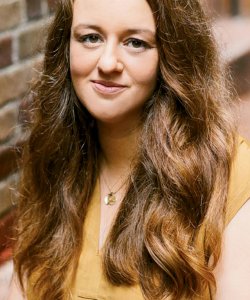The Economic Lives of Writers, the Best Sentences of 2017, and More
American Poetry Review editor David Bonanno has died; a new anthology of African American folktales; unpublished Zora Neale Hurston book to be released in May; and other news.
Jump to navigation Skip to content
American Poetry Review editor David Bonanno has died; a new anthology of African American folktales; unpublished Zora Neale Hurston book to be released in May; and other news.
The revelations in a book’s acknowledgments section; a Harry Potter story written by predictive text; books to look out for in 2018; and other news.
In preparation for cold winter months, red-toothed shrews are able to shrink their head and brain mass by 20 percent and then regrow it as the weather warms up in spring. With this survival strategy, they expend less energy when food resources are scarce. Does your energy level or your relationship to your body change during certain seasons? Does your body feel, act, or respond differently in the winter? Write a personal essay about measures you’ve taken, whether moderate or drastic, to adjust your body to difficult times or discomfiting temperatures at various points of the year.
Robin MacArthur reads a love letter to her home state of Vermont for an episode of State of the Re:Union with music scored by Red Heart the Ticker, MacArthur’s band with her husband Tyler Gibbons. MacArthur’s debut novel, Heart Spring Mountain (Ecco, 2018), is featured in Page One in the January/February 2018 issue of Poets & Writers Magazine.
In this video, Dan Beachy-Quick reads alongside Jen Bervin at Harvard University’s Woodberry Poetry Room. Beachy-Quick is the author of the essay collection Of Silence and Song (Milkweed Editions, 2017), which is featured in Page One in the January/February issue of Poets & Writers Magazine.
Loft Literary Center launches book festival; the politics of Syrian poet Adonis; Amazon announces most-read books of the year; and other news.

Fiction writer Danielle Lazarin discusses five journals that have published her short stories, some of which appear in her debut collection, Back Talk, forthcoming from Penguin Books in February.
University of Texas makes half of Gabriel Garcia Marquez archive publicly available; Publishers Weekly releases its Spring 2018 book preview; Merriam-Webster announces the word of the year; and other news.
Debut novelist Naima Coster on working with an editor of color; Hanif Abdurraqib and Tommy Pico on 2017; a profile of Adam Gopnik; and other news.
“I write with prose, but I write as a failed poet.” André Aciman speaks about the origins of his writing, working with editors, and teaching Proust with Dennis Glauque and Bing Yang for the Classic Talk series. Aciman’s novel Call Me By Your Name (Farrar, Straus and Giroux, 2007) has been adapted into a feature film directed by Luca Guadagnino and starring Armie Hammer and Timothée Chalamet.